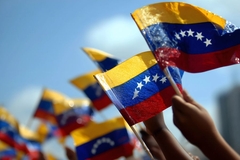
- Industry news
Industry news
- Category news
Category news
- Reports
- Key trends
- Multimedia
- Journal
- Events
- Suppliers
- Home
- Industry news
Industry news
- Category news
Category news
- Reports
- Key trends
- Multimedia
- Events
- Suppliers
SCA Acquisition of Procter & Gamble's European Tissue Business Gets EC Green Light

To remove the competitive concerns identified by the Commission, SCA agreed to divest its "Softis" brand in Germany and Austria, along with production facilities, converting lines and sales and marketing personnel.

07/09/07 The European Commission has approved, under the EU Merger Regulation, the proposed acquisition of the European tissue business of the US company Procter & Gamble by Sweden's SCA. Both companies are major suppliers of tissue paper products. The Commission's decision is conditional upon SCA's commitment to divest its "Softis" brand handkerchief/facials business". The Commission has concluded that the transaction, as modified by this commitment, would not significantly impede effective competition in the European Economic Area (EEA) or any substantial part of it.
SCA is a Swedish company active in the personal care sector across Europe. In the consumer tissue sector, SCA supplies toilet paper, household towels and handkerchieves/facials. SCA's main brands include Edet, Softis, Velvet and Zewa.
Procter & Gamble's European tissue business (P&G ECT) is a business division of Procter and Gamble plc (P&G) which supplies toilet paper, household towels and handkerchieves/facials in Europe. Its main brands are Bounty, Charmin, Tempo, Bluemia and Bess.
In addition to their own brands, SCA and, to a lesser extent, P&G ECT also produce and supply tissue paper products for private labels (i.e. products marketed under the retailers' brands).
The two categories of products (branded and private labels) are sourced separately by retailers, through bilateral negotiations for brands and through tenders for private labels, but are displayed next to each other on supermarket shelves. Therefore, while the Commission found that branded and private label consumer tissue products constitute separate product markets at the supply level, the competitive interaction between branded products and private labels proved crucial for the assessment of the case at the downstream retail level (i.e. on supermarket shelves).
The Commission's market investigation clearly indicated that private labels play an increasingly important role in the tissue sector across the whole of Europe. Compared to branded products, their share of retail sales is consistently around 50% across Europe and growing.
The main overlaps between the parties' activities occur on the markets for the production and supply of branded toilet paper, household towels and handkerchief/facials supplied to German and Austrian retailers. The Commission found that the parties' branded toilet paper and household towels are under intense competitive pressure from private labels. Consequently, despite the high market shares on these markets, the Commission concluded that the new entity would not be able to exert any market power or increase wholesale prices. However, the Commission came to a different conclusion as to the production and supply of branded handkerchief/facials in Austria and Germany. The proposed concentration, as initially notified, would have combined the two major brands on the Austrian and German market for handkerchiefs/facials (P&G's "Tempo" and SCA's "Softis"), leading to extremely high market shares and less competition. As consumers are more likely to buy a preferred brand of handkerchief or facial wipe as compared to toilet paper and household towels, private labels would not have exerted a sufficiently strong competitive constraint on the parties' brands.
To remove the competitive concerns identified by the Commission, SCA agreed to divest its handkerchief/facials brand "Softis" in Germany and Austria, along with production facilities, converting lines and sales and marketing personnel, at the option of the candidate purchaser. Moreover, with a view to taking into account comments put forward by third parties in the framework of the market test of the remedies, SCA also committed to divest, at the option of the candidate purchaser, the Softis handkerchief/facial brand in all other countries where SCA is currently active—mainly Central and Eastern Europe—to enhance the viability of the divested business.










